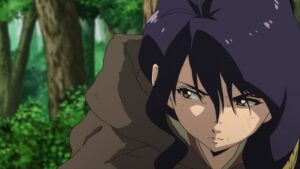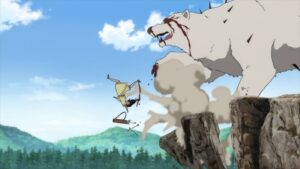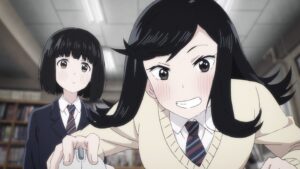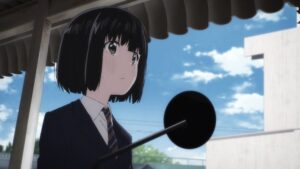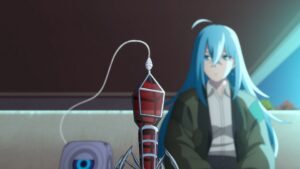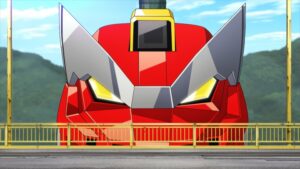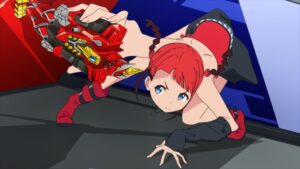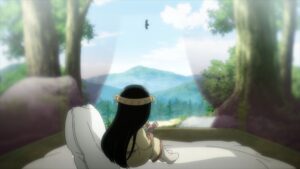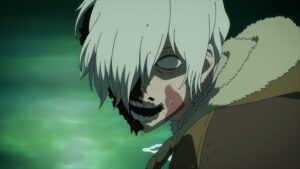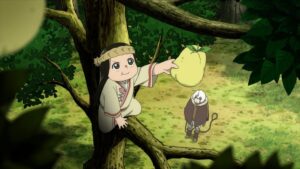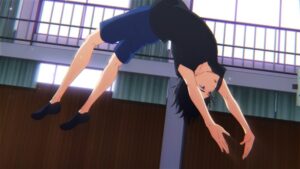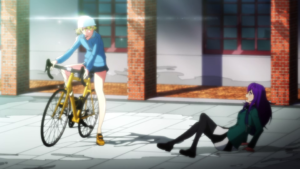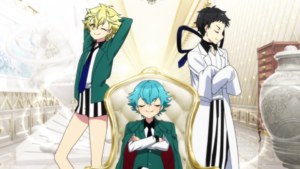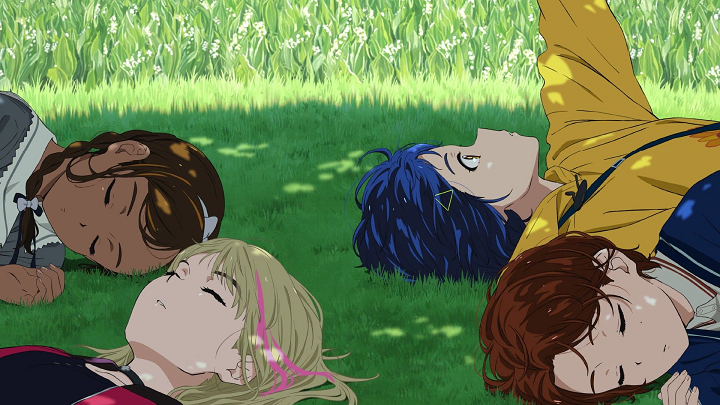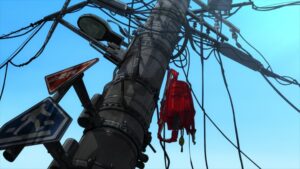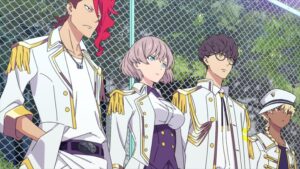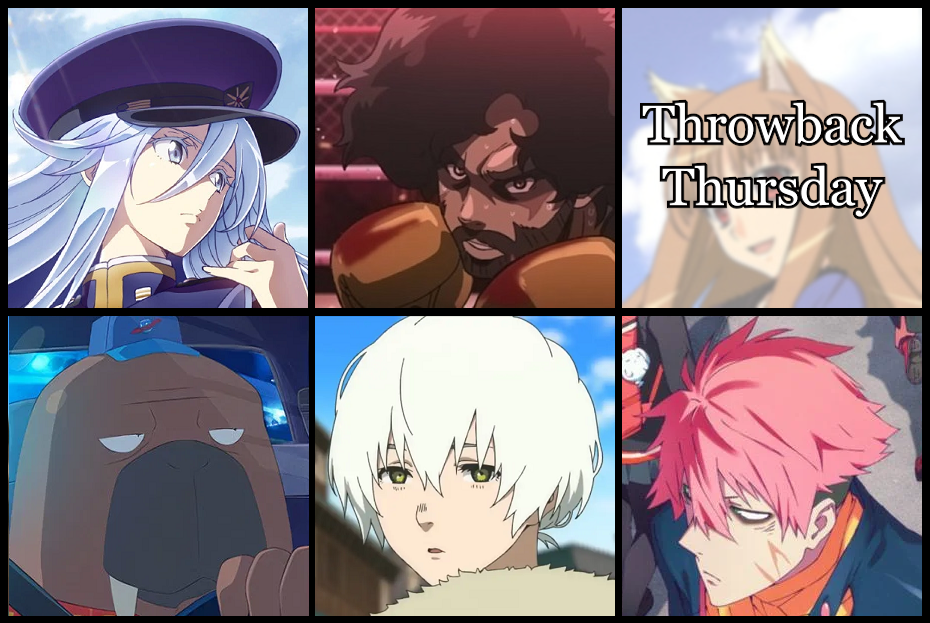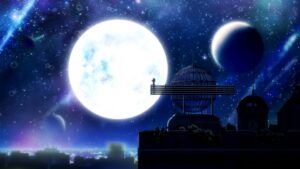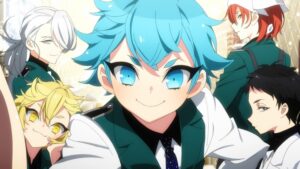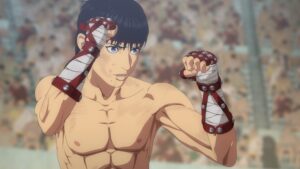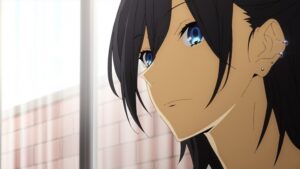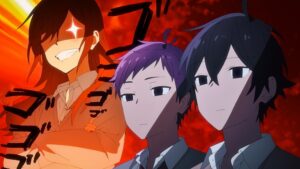Fumetsu no Anata e
Short Synopsis: An immortal being learns about the fleeting joy and terrible sorrows of living.
Armitage: The reason why To Your Eternity’s biggest litmus test was going to be the adaptation of the manga’s first chapter is because this introduction just carries such a quiet devastation and is so uncharacteristic of modern manga tropes that it’s almost unfair. It presents us with a heartbreaking self-contained narrative which also sets up the premise and tone of the series effortlessly. And while I was always skeptical of Brain’s Base as being the studio in charge of the adaptation, they do actually ‘adapt’ the source material near perfectly here. The one thing they could have chosen to do was to linger on the more poetic moments of the story. Like the being heading out into a wondrous world brimming with the possibility of life, while the boy lies behind him, lifeless. As I mentioned in the Spring Preview, Yoshitoki Ooima’s art cannot possibly be replicated in an anime and Brain’s Base was never gonna be the studio to even attempt to do it. So what we get are a few awkwardly minimal looking backgrounds and wide-shots but that’s about the only negative I hold against this premiere.
The one thing that they do manage to do right is character animation. Fleeting smiles, dejected eyes, trickling tears. All portrayed flawlessly. The OST too is fittingly sombre and melancholic. So, clearly the anime adaptation is going to have contrasting strengths to the manga. Which is fine, as the source material is far too accomplished to be held down by minor technical quibbles. And as long as the anime doesn’t pull a Neverland, this story is going to be one to pull at your heart-strings and then some.
Potential: of breaking your heart.
Lenlo: Fumetsu is freakin weird. Not weird like Odd Taxi, it’s easy to follow and there’s a clear purpose to it. Weird in that I have no idea where it’s going. I wasn’t expecting the Orb to become the MC. I wasn’t expecting this show to open that bleakly. But the way Fumetsu slowly rolled into it, slowly introduced and executed on the idea, was great. Some might call it boring and I don’t think they are necessarily wrong. This was 23 minutes of walking around a bleak landscape with a lonely boy talking to himself, hardly riveting stuff. I think Fumetsu would have really benefited from some better backgrounds to keep us engaged in these snowy plains because what we got are… kinda mediocre. But if you stick around to the end I think the payoff is worth it. It’s a really strong hook and I like how dedicated Fumetsu is to it. I have no idea how it’s going to fill out 20 episodes with this premise. But if they can give me the same kind of emotional catharsis I got from this one then they are gonna be pretty good.
Potential: 70%
Bishounen Tanteidan
Short Synopsis: A quintet of quirky middle school detectives search for a star that their client glimpsed as a child.
Mario: “The first three rules of Pretty Boy’s Detective Club: be pretty, be a boy, be a detective.” How well you take these rules will sum up your reaction to this show, as they’re treated with all seriousness. I’m a fan of both NisiOisin’s genre-bending works and Shaft’s quirky visual style and even then I found much of the dialogue utterly pretentious. Like Wooper mentioned below, it reminds me a great deal of Ouran Koukou Host Club, but while the characters are bland, I enjoy the concept of these boys doing detective work. The visuals are easily the show’s strongest suit, where Shaft handily employs several art styles – the girl’s flashback especially is something to behold. It’s the third collaboration between Shaft and NisiOisin so it’s kinda a household brand at this point. And like any household brand it attracts you because it’s singular. As such, while this episode never fully gripped me you bet I will follow it till the end of its run.
Potential: 60%
Wooper: This episode could be summed up as “Ouran Koukou Host Club by way of Nisio Isin by way of Studio Shaft.” How many of those people/things you enjoy will be a strong indicator of how much you’ll like this series. Personally, I’m fond of maybe one and a half of those three, so while I found a lot to admire about Bishounen Tanteidan, I didn’t particularly like it. What I did like were the overstuffed backgrounds and forays into different art styles, which make the show one of spring’s most visually arresting offerings. The starlit skies, silhouetted architecture, and simulated oil pastel shots were very pretty, which is fitting for a series that revolves around the concept of beauty. What I didn’t like was almost everything else: the pseudo-intellectual opening monologue, the swaths of character-profiling exposition, the camera’s tendency to focus on a middle schooler wearing hot pants, and the list goes on. I’d probably be more charitable if the female lead hadn’t been swept away in the mess, but alas, Haruhi she ain’t. I might revisit this show if the buzz is still good around the midseason mark, but for now I’ve seen enough.
Potential: 30%
Cestvs: The Roman Fighter
Short Synopsis: A Roman slave fights for his freedom by participating in boxing matches.
Wooper: Don’t mess with me like this, Cestvs. Don’t open your show with ugly CG character models, thereby allowing me to brace myself for one sort of badness, and then switch to an even worse hand-drawn style for the remaining 90% of your premiere. Honestly, the move to 2D did this episode no favors, unless encouraging you to stop watching counts. The shift neutered not only the fight scenes, whose fist-body collisions were no more forceful than a primary schooler cracking an egg, but also the anguish inherent in the story. The cries of the fighters as they were struck, their gasps for air and whimpers of pain – none of those sounds were reflected on the characters’ faces, even during life and death bouts. That mismatched quality would have turned Cestvs into a gut-busting comedy had slavery not been an integral part of its premise. Even the injustice and the brutality of slavery couldn’t bring gravity to this production, though. What else is there to say? Spring 2021 truly saved the worst for last.
Potential: 0%
Mario: It feels bad for a show about boxing in an unique setting like Cestvs to be treated like this. The 3DCG is the elephant in the room here. Not only is it ugly to watch, but the facial expressions are nonexistent. Moreover, the punches don’t land any impact, which is a red flag for a show where boxing is concerned. Adding to that, the writing is pretty mediocre as well. The titular character Cestvs doesn’t have one shade of personality, the death of his “best friend” is ridiculous and pointless, and WTF he’s a slave but he has his own coach and apparently he can do some individual training? HE’S A SLAVE for god’s sake!! It’s not the worst premiere this season but there’s very little hope for this to be something worthwhile.
Potential: 0%

